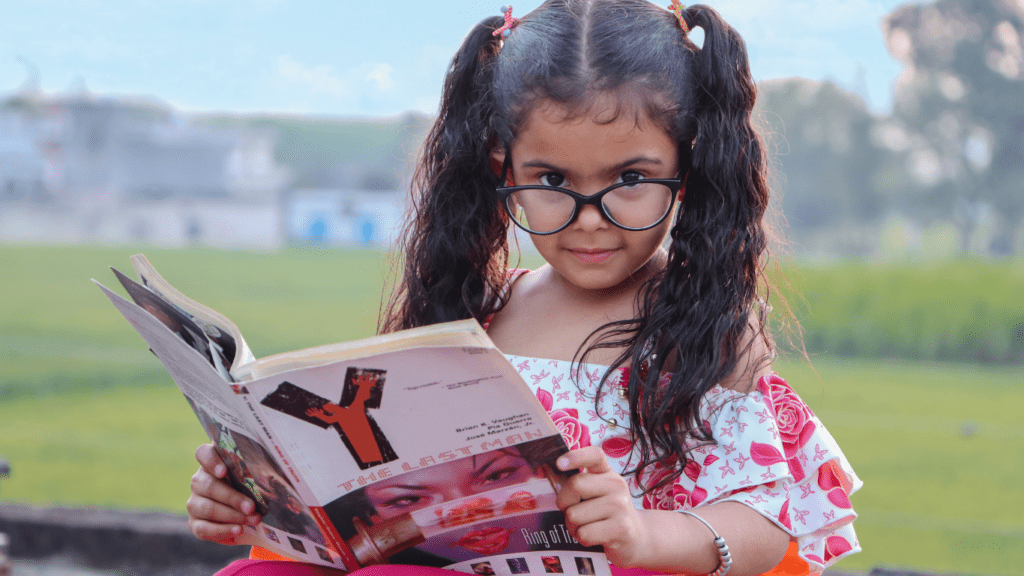As a parent or educator, recognizing the early signs of giftedness in children is crucial for supporting their unique abilities and potential. From exceptional problem-solving skills to advanced language development, these indicators can often manifest in unexpected ways. Understanding these signs can help nurture a gifted child’s talents and provide them with the appropriate resources to thrive academically and emotionally. In this article, I’ll explore some common early signs of giftedness in children and offer insights on how to identify and support these exceptional young minds. By being aware of these signs, we can create an environment that fosters their intellectual growth and overall well-being.
Understanding Giftedness in Children
When it comes to understanding giftedness in children, it’s essential to clarify definitions and dispel common misconceptions about what it means to be gifted. Many people think that giftedness is solely about high intelligence, but it encompasses a much broader spectrum of traits and abilities. Gifted children may demonstrate exceptional skills not only in academics but also in areas such as creativity, leadership, and the arts. Recognizing these diverse manifestations of giftedness is key to providing appropriate support and opportunities for these young individuals.
Definitions and Common Misconceptions
Giftedness in children is often misunderstood as solely being related to high IQ or academic achievement. However, giftedness is a multifaceted concept that includes exceptional abilities and potential in various areas such as intellectual, creative, artistic, leadership, or specific academic fields. It’s important to recognize that gifted children can excel in diverse ways beyond traditional measures of intelligence. By understanding the broad spectrum of gifted traits, parents, educators, and caregivers can better support and nurture these children’s unique talents.
Importance of Early Identification
Early identification of giftedness in children is crucial for several reasons. Recognizing gifted traits early allows for tailored educational strategies that cater to the individual needs of these children. By identifying giftedness at a young age, appropriate resources and support can be provided to help gifted children reach their full potential and prevent potential challenges such as underachievement or disengagement in traditional school settings. Early intervention and support play a significant role in fostering the intellectual growth and emotional well-being of gifted children.
Early Signs of Giftedness in Children
I’ve always found that early signs of giftedness in children can manifest in various ways, highlighting their unique abilities from a young age. When it comes to identifying gifted children, it’s essential to observe their behaviors and characteristics closely to provide the necessary support and opportunities for their intellectual and emotional development.
- Advanced Language Skills
In my experience, one of the early signs of giftedness in children is demonstrated through their advanced language skills. Gifted children often exhibit a remarkable vocabulary, strong communication skills, and a propensity for complex sentence structures at an early age. They may also show an eagerness to engage in conversations with adults and display an advanced understanding of abstract concepts. - Exceptional Problem-Solving Abilities
Another key indicator of giftedness in children is their exceptional problem-solving abilities. Gifted children tend to approach challenges with a unique perspective, demonstrating high levels of critical thinking, logical reasoning, and the ability to solve complex problems with ease. They may quickly grasp new concepts, make connections between different ideas, and come up with innovative solutions to difficult problems.
Intense Curiosity and Unquenchable Thirst for Knowledge
Gifted children often exhibit an intense curiosity and an unquenchable thirst for knowledge that sets them apart from their peers. They display a strong desire to explore new ideas, ask probing questions, and delve deep into subjects that interest them. Their curiosity drives them to seek out information independently, engage in research projects, and pursue learning opportunities beyond the classroom.
By recognizing these early signs of giftedness in children and providing them with the appropriate support and encouragement, we can help nurture their talents, enhance their learning experiences, and foster their overall development to reach their full potential.
Assessing Giftedness in Young Children
When trying to identify giftedness in young children, parents play a crucial role in observing and recognizing potential signs early on. It’s essential to be proactive in observing their behaviors, interactions, and interests to understand their intellectual abilities better.
Role of Parents in Observation
As a parent, I know the importance of keen observation in identifying signs of giftedness in my child. I pay attention to how my child communicates, solves problems, and engages with learning tasks. By actively observing and documenting their behaviors, parents can provide valuable insights to educators and professionals.
When to Seek Professional Evaluation
In my experience, seeking professional evaluation is necessary when parents notice consistent patterns of advanced cognitive skills or exceptional abilities in their child. If a child exhibits intense curiosity, exceptional memory, or advanced problem-solving skills beyond their age, consulting with professionals specialized in gifted education can provide a clearer picture of their intellectual needs.
Supporting Gifted Children
When it comes to supporting gifted children, it’s vital to provide them with appropriate educational opportunities and address potential challenges that may arise in their social and emotional development.
Educational Opportunities and Challenges
In catering to gifted children, I prioritize offering enriched learning experiences tailored to their advanced abilities. I believe in creating a conducive environment that challenges their intellect and encourages growth.
It’s essential to recognize that gifted children may face challenges such as boredom in traditional classroom settings or a lack of peers who share their intellectual interests. As a parent or educator, I know the importance of advocating for appropriate educational accommodations to keep these children engaged and stimulated.
Social and Emotional Development
In fostering the social and emotional development of gifted children, I focus on providing opportunities for them to interact with like-minded peers who can understand and appreciate their unique perspectives. I aim to create a supportive network that acknowledges their emotional intensity and helps them navigate any social challenges they may encounter.
Gifted children may experience heightened sensitivity or perfectionism, requiring tailored support to ensure their well-being. As a caregiver, I am attentive to their emotional needs and work to nurture their self-esteem and resilience in the face of societal expectations.



